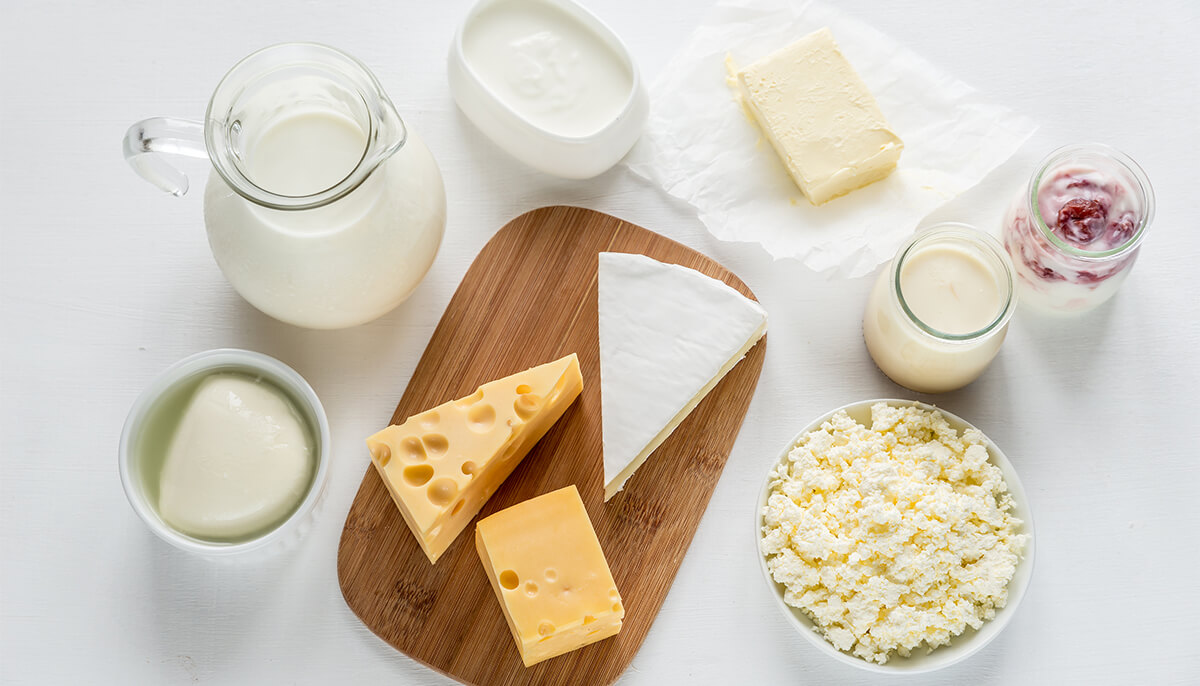Protein in Dairy
Dairy products are an excellent source of high-quality protein. Milk, yogurt and cheese contain all nine essential amino acids our bodies need. Adequate protein intake helps build and maintain muscle mass and supports overall health.
Milk Protein
Cow’s milk is comprised of two main proteins – casein and whey. Casein makes up around 80% of the protein in milk and curds during digestion. It provides sustained release of amino acids. Whey protein makes up the remaining 20% and digests quicker, making amino acids rapidly available to the body. Both casein and whey contain all essential amino acids, with leucine, valine and isoleucine in particularly high amounts. These branched-chain amino acids help stimulate muscle protein synthesis.
Yogurt Protein
Like milk, yogurt contains casein and whey protein. Greek yogurt specifically has up to twice the protein content of regular yogurt due to straining out the liquid whey during production. One cup of nonfat Greek yogurt packs about 23 grams of high-quality protein. Dairy Nutrition makes Greek yogurt an ideal snack or meal replacement and muscle builder.
Cheese Protein
As a fermented dairy product, cheese retains much of the protein from milk, making it another nutrition powerhouse. Mozzarella, cheddar and Swiss are some common protein-packed hard cheeses. One ounce of cheddar cheese contains about 7 grams of protein. Soft cheeses like cottage cheese are especially high in protein per calorie due to the curds being drained of liquid when made.
Calcium in Dairy
Building and maintaining strong bones is key for good health. Calcium plays an integral role in this process and dairy is one of the best dietary sources of this mineral.
Calcium in Milk
An 8-ounce glass of milk contains approximately 300 mg of calcium, around 30% of the recommended daily intake of this mineral. Nonfat and low-fat milk maintain high calcium levels while reducing fat and calories compared to whole milk options. Milk provides an absorbable form of calcium that the body readily utilizes for bone health.
Calcium in Yogurt
One 6-ounce serving of plain yogurt contains around 300-400 mg of calcium depending on fat percentage. Like milk, the calcium in yogurt is highly bioavailable. Yogurt’s probiotics may also aid calcium absorption from the digestive tract. Greek yogurt in particular serves as an excellent calcium-rich snack or meal component.
Calcium in Cheese
Hard cheeses are a valuable source of calcium. An ounce of cheddar cheese supplies over 200 mg of this important nutrient. Cheese makers originally created the product to preserve and transport the nutrients in milk, including calcium. Adding cheese to meals and snacks helps boost daily calcium intake.
Vitamin D in Dairy
While dairy provides absorbable calcium, it also contains significant amounts of vitamin D to maximize calcium absorption and utilization for bone health.
Vitamin D in Milk
Milk is either fortified with vitamin D during processing or contains the vitamin D made by cows if grazed on grass seasonally exposed to UVB light. A single 8-ounce glass supplies around 100% of the daily value for vitamin D. This crucial vitamin works synergistically with calcium to protect against fractures and bone loss.
Vitamin D in Yogurt and Cheese
Plain yogurt naturally contains around 1-2 micrograms of vitamin D per 6 ounces depending on fortification levels. Hard cheeses like cheddar, Swiss and provolone also supply this bone-building vitamin. Just an ounce of cheddar cheese provides around 25% of the daily value.
Additional Benefits of Dairy Nutrients
While supporting bone health, the complete package of high-quality protein, calcium, vitamin D and other micronutrients in dairy offer additional advantages and help maintain overall wellness.
Muscle Support
The muscle-building branched-chain amino acids in dairy protein and the anabolic effects of leucine specifically help preserve muscle mass throughout life and during dieting or weight loss. This can maintain mobility and independence in aging.
Heart Health
Population studies indicate moderate dairy consumption may aid cardiovascular wellness in part by lowering blood pressure slightly when calcium, potassium and magnesium work together. Dairy protein and certain fats when consumed in moderation also help control weight to reduce disease risk.
Brain Health
Adequate protein, B vitamins, iodine, zinc, magnesium and vitamin D from dairy promote cognitive function as we age. Emerging research links dairy nutrients to reduced risk of neurodegenerative conditions like Alzheimer’s disease over the long term.
Metabolic Health
Nutrients in dairy help regulate blood sugar and keep overall metabolic processes running smoothly. Protein and calcium specifically promote satiety, control hunger hormones, and have favorable effects on body composition when part of a balanced diet.
*Note:
1. Source: Coherent Market Insights, Public sources, Desk research
2. We have leveraged AI tools to mine information and compile it

